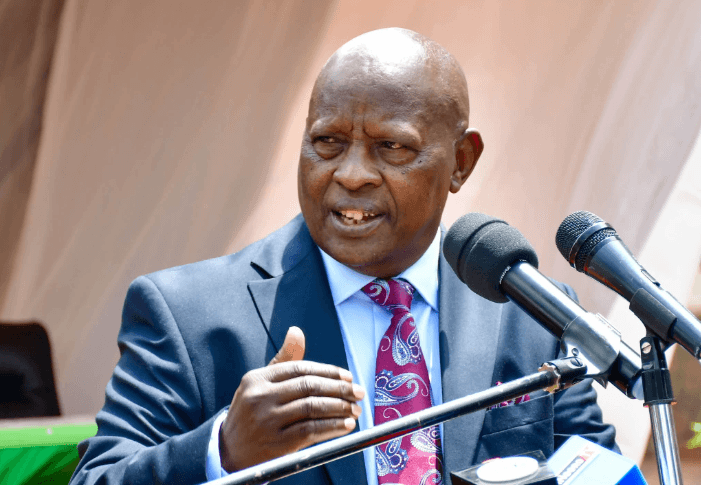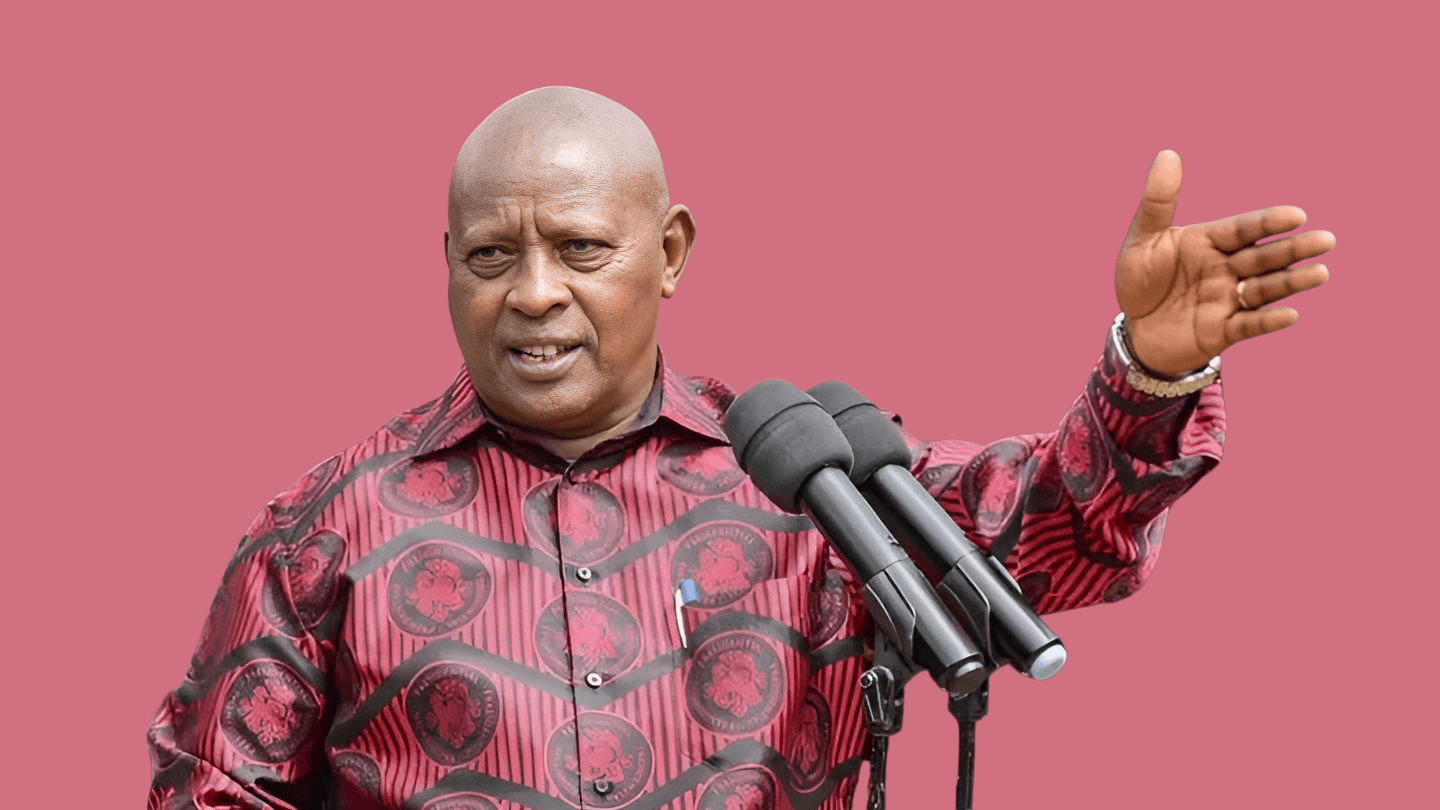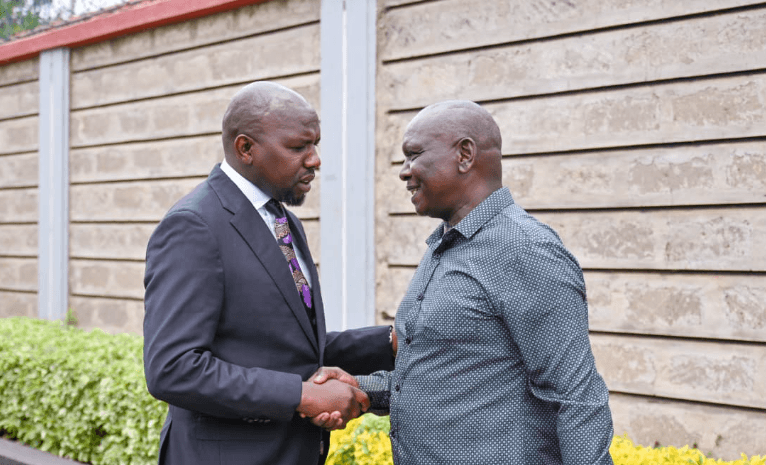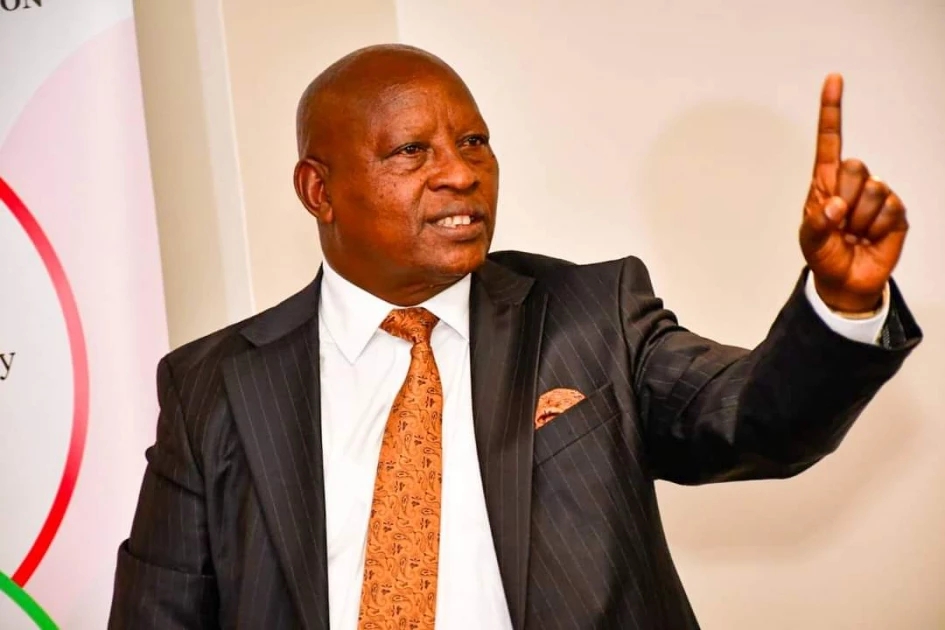On the surprises of life, in June, I got the rare opportunity to visit the International Criminal Court (ICC) in the Hague, Netherlands, courtesy of the celebrations of the 125th anniversary of the Hague as a city of peace and justice.
As a follow-up to their work, I chose to find out from Dr Ruiz Verduzco, executive director of the Trust Fund for Victims of the ICC, on the planned reparations for the Ugandan victims of Dominic Ongwen’s atrocities.
Ongwen, a former child soldier turned brigade commander of the Lord's Resistance Army, surrendered to US forces in Central African Republic in 2015. On 4 February 2021, the Trial Chamber IX of the ICC found him guilty of a total of 61 crimes, comprising crimes against humanity and war crimes committed in Northern Uganda between 1 July 2002 and 31 December 2005. On 6 May 2021, Dominic Ongwen was sentenced to 25 years of imprisonment.
Verduzco shed light on the quest for reparations for his victims.
What types of reparations have been proposed to be awarded to the victims of Dominic Ongwen's crimes?
The ICC Trial Chamber issued a reparation order against Dominic Ongwen for €52.4 million on 28 February 2024. The order benefits the victims of the crimes for which Ongwen was convicted at the ICC. The reparations are of three modalities. First, €750 (about Sh100,000) in cash to each victim as a symbolic measure to recognise the harm they suffered.
Second, rehabilitation services to address physical, moral or material injuries. Some examples of rehabilitation could be medical treatment and psychological counselling and socioeconomic rehabilitation, such as income-generating initiatives. Finally, symbolic and satisfaction measures, including the memorialisation of the victims and survivors and of the events.
How many victims of the Dominic Ongwen crimes are eligible for the potential reparations, and how much are they being awarded?
The reparation order covers: individuals harmed in attacks for which Ongwen was convicted in four IDP camps, namely Abok, Lukodi, Odek, and Pajule; second, victims in other localities who suffered sexual and gender-based violence; third, individuals who, as children, were recruited or used in the militia of Ongwen, and lastly children born out of rape.
The ICC Judges consider that at least 49,772 individuals, who are direct or indirect victims, may be beneficiaries of reparations, including those of the 4,095 victims who were able to participate during the trial.
Once the reparation process is launched, victims will be contacted by the ICC to provide their information, and the court will then review their applications.
What challenges does the TFV foresee in implementing the reparations to the victims of the Dominic Ongwen case?
We know that victims want the reparation programme to be a success. The court and the Trust Fund for Victims also want that. But it will take time for the court to set up all the activities to make reparations happen and victims will need to wait for some time. We will find the best ways to ensure all victims receive information and understand why they may need to wait.
Another challenge at the ICC Trust Fund for Victims is obtaining the necessary funding to cover the reparation because Ongwen does not have money to pay for the order. Some victims will have to wait more than others.
As mandated by the judges, the victims in dire need will be prioritised in the process. Last month, the TFV launched an urgent appeal of €5 million to address the victims’ urgent needs and vulnerability in line with the prioritisation provided for in the Reparations Order.
After fulfilling this first funding appeal, the Trust Fund for Victims wants to mobilise at least €5 million annually to implement the Ongwen Reparation Order progressively.
This year, the judges will decide on the general plan for the reparation programme. This decision will provide a clear roadmap for the future of the programme, keeping all potential beneficiaries and stakeholders informed and involved.
What role are the local community organisations playing in the reparations process?
Local community organisations play a crucial role in the reparations process by facilitating consultations and dialogue with victims, amplifying their voices and demanding safe spaces for affected communities to share experiences and demands. They will actively monitor the reparations process to ensure it is meaningful, victim-centred and transparent.
Their involvement ensures that the reparations process is culturally appropriate and effectively addresses the specific needs of the victims.
An ongoing consultation process with victims and communities will be put in place throughout the implementation of reparations.
If local organisations have special capabilities to deliver services as part of the reparation programme, they can also apply to be considered as implementing partners. The Trust Fund for Victims selects implementing partners on the basis of a strict competitive process, which complies with the ICC Financial Rules and Regulations.
How are the psychological and emotional needs of victims being addressed in the reparation's framework by the TFV?
The Trust Fund for Victims has assessed the psychological impact and emotional needs of victims of crimes across Northern Uganda.
In the Ongwen reparation order, the ICC judges recognised that the harm caused to victims includes moral harm, which covers psychiatric and psychological health and comprises also stigma suffered in communities by many of them. The order asked the TFV to develop activities to address psychological and emotional needs. We have met more than 2,700 victims since February 2024, when the order was issued, and we heard how important is for victims to receive psychological treatment.
Also, there is the element of recognition throughout all activities. In a tangible manner, the cash payment is a measure of recognition.
Memorialisation activities will also contribute to emotional and psychological well-being.
And by participating in the programme, victims will also strengthen their social connections and ties to their communities.
How are you handling ‘do no harm’ and avoiding the re-traumatisation of victims in the reparation process?
The Rome Statute, which is the international treaty that created the ICC, requires judges to establish principles of reparations, and one such principle is “do no harm”. This principle is recognised again in the Ongwen Reparation Order, with concrete instructions from the Judges.
TFV is mandated to integrate the "do no harm" principle. This involves robust measures to prevent re-traumatisation, including providing trauma-informed care, ensuring strict confidentiality and actively involving victims in the planning and decision-making processes to uphold their agency and dignity.
What measures are being taken by TFV to monitor and evaluate the effectiveness of the reparations programme over time?
The TFV has a framework of indicators to monitor the performance and impact of the programme.
Day to day, we monitor that our activities are done on time and with quality, such as strict financial guidelines to avoid fraud and misuse of the funds that need to reach the victims.
During the implementing, we regularly consult with victims and listen to their stories of change. We have feedback mechanisms to also hear when things are not going well.
For long-term impact, the TFV commissions external independent evaluations.
Are there any other cases whereby TFV is currently conducting reparations?
The TFV has conducted reparations in four other cases, in the Democratic Republic of the Congo and in Mali, and we implement programmes of assistance in seven countries. The Ongwen reparation programme will be the largest programme implemented by the TFV to date.
One reparation programme has already been completed, the Katanga case in Ituri Province, DRC, for which Katanga was convicted and held liable as an accessory by the ICC. The liability of Katanga was USD 1 million.
It was the first time that the implementation of reparations ordered by the judges in an International Criminal Court case has been completed.
In the Al Mahdi case in Mali, the Trust Fund is implementing a programme concerning the destruction of cultural heritage property, which is a war crime.
The programme includes reconstructing the Mausolea of Timbuktu, memorialising events, granting individual reparations and supporting the economic revitalisation of the community of Timbuktu. The reparation in this case is €2.7 million.
In the DRC also, the Trust Fund is implementing a programme for more than 3,000 child soldiers and thousands of victims of attacks, including of sexual violence, related to the Lubanga and Ntaganda cases.
We also implement programmes of assistance in seven situation countries where the ICC is investigating, but there are no cases with reparation orders.
Are there any success stories or notable examples of how other reparations have positively impacted the lives of victims from the work of TFV?
Yes, there are several success stories from the work of the TFV. An independent evaluation of the Katanga reparation programme provides evidence of increased resilience and trust in institutions from victims that participated in the reparation programme, as well as enhanced psychological well-being.
In the Lubanga case from the DRC, former child soldiers received reparations that included educational support, vocational training and psychosocial counselling. These measures have helped many victims reintegrate into their communities, gain new skills and take on business projects to ensure an income.
We also have Richard’s story in Uganda, who was a victim of a landmine in 2003 and lost his right leg. He participated in the TFV assistance programme in Gulu. Today, Richard is a thriving farmer, providing for his family and leading a group of landmine survivors in his subcounty with passion and dedication, a testament to the success of our programmes.
Another story I can share is Robert’s in Ituri in the DRC. When he was 12 years old, he was forcibly enrolled in a militia group for more than four months. He received reparation awards in the Lubanga case, was enrolled in psychological therapy and medical care and received training in culinary arts. He now provides for his needs and takes care of his family.
THE TAKE-HOME
No one can give back to survivors what they lost as a result of the crimes committed against them. This is why it is important to prevent and to stop such crimes from being committed. But, if they have happened, justice is the instrument to tell us who did it, and through reparations to help reconstruct what was once whole. Justice is hope, and with hope, communities and individuals can always prosper again.
Vera is a Peace, Democracy and Development Researcher and Scholar. [email protected]
Note: In this interview, the terms “victim” and “survivor” are used interchangeably. The term “victim” is consistent with the language of the Rome Statute that established the International Criminal Court (ICC), The use of “victims” as term does not intend to diminish the self-determination, dignity, and strength associated with the term “survivor”.










